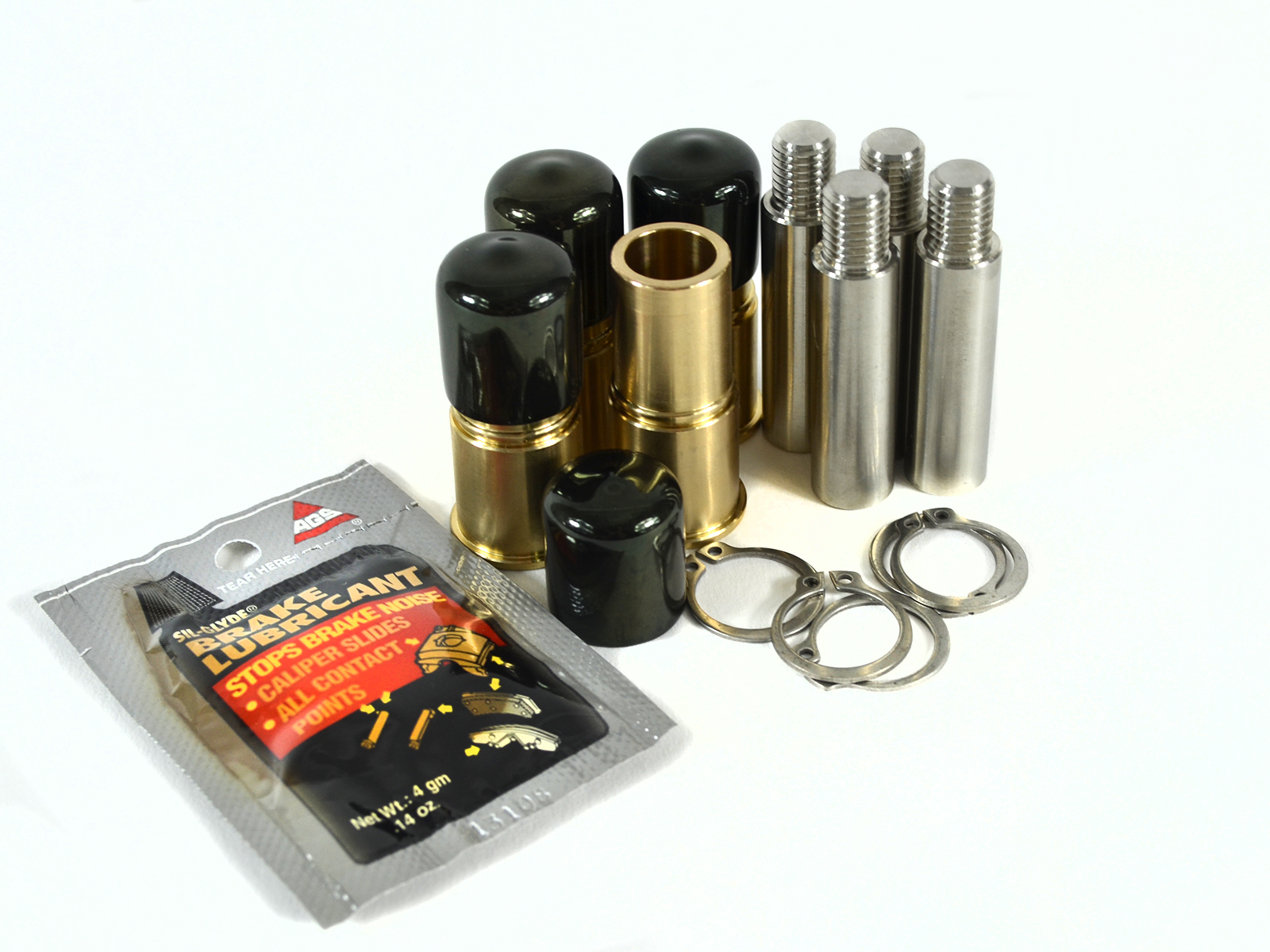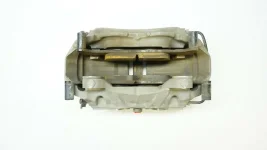I like to do everything by the book like you do, but it doesn't hurt to enhance things sometimes.Not necessarily. Follow the factory service instructions for the vehicle you are working on.
You are using an out of date browser. It may not display this or other websites correctly.
You should upgrade or use an alternative browser.
You should upgrade or use an alternative browser.
Should I grease caliper guide pins on an Audi?
- Thread starter mcio
- Start date
you’ve never seen how an ate floating caliper works. there is no needthe Toyota special glycol rubber grease, and that's why they aren't using it, as other greases may cause sticking.
Back to Audi/VW, why do the fronts pins not require lubrication? Are they not lubricated from the factory? I looked in the factory service manual and it lines up with what you said - there's no mention of lubricating the guide pins in the front brake section, but it does say to lubricate them in the rear:
View attachment 60504
I also noticed that the manual makes no mention of lubricating the front brake pad backplates. It does however say to coat the rear brake pad backplates. Both the front and the rear have rubber shims installed, but maybe it's because of the metal clips attached to the fronts? Interested in your thoughts.
Front:
View attachment 60510
Rear:
View attachment 60511
Look at the front, they have the clips that go into the caliper piston, this also helps reduce high frequency vibrations which is the main cause of brake noise. The rears could use a lube or product like this..
https://www.amazon.com/Liqui-Moly-B...ERQ2?source=ps-sl-shoppingads-lpcontext&psc=1
For lubricated pins I started using this some time ago, it is as good as anything.
https://www.amazon.com/dp/B016E5E59..._wg=X2bEM&ref_=sbx_be_s_sparkle_td_asin_0_img
Look at the front, they have the clips that go into the caliper piston, this also helps reduce high frequency vibrations which is the main cause of brake noise.
I'm aware of the clips, was unsure though if I should apply silicone grease on the rest of the back plate, around the clips. Probably overthinking this.
Unless anyone says otherwise I will plan on lubricating the rear guide pins, but not the front guide pins,
as well as the front/rear pad backing plates/ears/other metal to metal contact.
Going to do a brake job this weekend (pads and rotors) on my 2017 Audi A4. Just wondering if I should grease the caliper guide pins or not. Don't think Audi makes mention of it, and I know BMW specifically says not to. Was wondering if anyone has experience with Audi/VW and whether or not they should be lubricated. If so plan to buy some 3M silicone paste.
Thanks!

If your bushings look like that, which is common on ATE calipers, then no, no lube needed. Keep the guide pins clean though.
Some people, like me get Tyrolsport bushings, which is a hard metal bushing, which does require lubrication.
One the rear calipers, wear the caliper is held to the carrier to the guide pin via a bolt, sometimes you need to remove the guide pin and regrease it.

https://www.tyrolsport.com/braking/tyrolsport-brake-caliper-stiffening-kit-for-vw/audi/
An aftermarket guide pin/bushing kit like this requires lubrication, and it is supplied with a packet of sil-glyde
Back to OEM parts...
if the carrier looks like this:

Where the caliper bolted to the guide pin, then every now and then you need to remove the guide pin and relube, to ensure there is grease under the rubber boot.
Last edited:
Back to OEM parts...
if the carrier looks like this:

Where the caliper bolted to the guide pin, then every now and then you need to remove the guide pin and relube, to ensure there is grease under the rubber boot.
This is my front caliper. 4 piston fixed, Continental Teves. Not sure what the carrier looks like itself, guess I'll find out when I do the job this weekend. Let me know if you have experience with this caliper design. So far from what people have said, the pins are meant to be dry.
Attachments
Fixed calipers don't even come with what I'd call "slide pins". Only sliding calipers do "slide", while on fixed calipers only the pistons do move. Why didn't you mention you have fixed calipers from the beginning?
Not necessarily. Follow the factory service instructions for the vehicle you are working on.
Which in this case most likely calls for G 052 150 A2, which is a polyglycol.
https://bobistheoilguy.com/forums/t...ntrol-arm-on-a-skoda-vag.340784/#post-5762944
This toyota rubber grease is to maintain rubber surfaces, such as piston shrouds and the like.
Does not look to me like a high temperature resistant slider pin lubricant.
I do not see anything on it that would indicate this is a high temperature lubricant.
Does not look to me like a high temperature resistant slider pin lubricant.
I do not see anything on it that would indicate this is a high temperature lubricant.
Similar threads
- Replies
- 53
- Views
- 4K
- Replies
- 4
- Views
- 382
- Replies
- 17
- Views
- 3K

